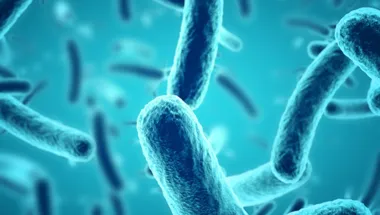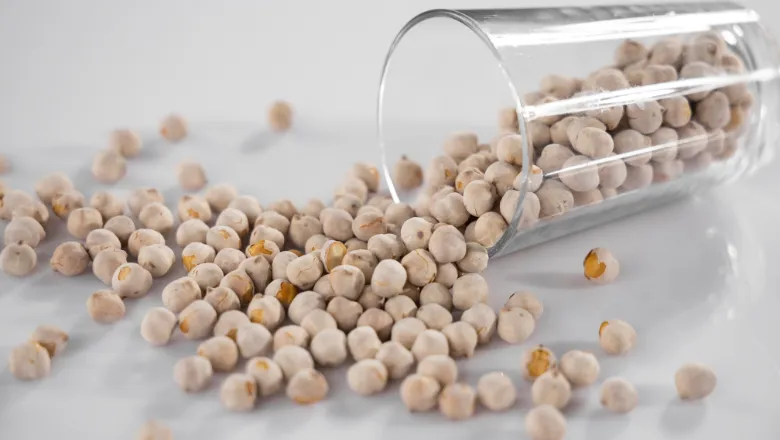
Dr Balazs Bajka
Lecturer in Nutritional Sciences
Research interests
- Nutrition
Biography
As a gut physiologist, my research investigates how dietary components, particularly dietary fibres can alter nutrient absorption and affect metabolic stasis. Current research has demonstrated that DF reduced lipid diffusion through intestinal mucus, which is likely to slow absorption.
I use biophysical, cell and molecular biology approaches to assess effects on digestion and mixing in the gut lumen, the influence of secreted compounds such as bile, the role of the microbiome, on mucosal function, contractility and endocrine response particularly in the small intestine. Understanding the physical and molecular mechanisms by which dietary components interact with each other, the microbiome and the host, can provide better strategies for the prevention and treatment of conditions such as obesity and type-2 diabetes.
Research

Diet & Gastrointestinal Health Research Group
The Diet and Gastrointestinal Health Research Group aims to understand the molecular, cellular, whole person and population-level mechanisms involved in gut health and the development and treatment of gastrointestinal disease.

Gut health and diet
Maintaing gut health, and preventing gastrointestinal disease are important features of health and well being

Postprandial metabolism
Postprandial metabolism refers to the metabolic changes that occur after a meal, following the absorption and processing of nutrients

Phytochemicals
Phytochemicals are plant secondary metabolites. Currently, more than 10000 different types of phytochemicals have been identified, and many still remain unknown.

Fats and fatty acids
Understanding of the role of dietary fats and fatty acids in human health is constantly evolving. Our department has a longstanding interest in the effects of manipulating dietary fat composition on cardiometabolic disease risk factors

Carbohydrates and biopolymers
Biopolymers refers to natural polymers that are produces produced by cells of living organisms. Of particular interest to our group and nutritional sciences in general are carbohydrate polymers from plant sources such as starch, cell wall matrices (including non-starch polysaccharides or ‘dietary fibre’) and polyphenolics.

Bioaccesibility & bioavailability of nutrients and bioactives
Iron deficiency (ID) and iron-deficiency anemia (IDA) are global problems that affect more than 2 billion people accounting for 0.8 million deaths annually worldwide. Consequently, sustainable food-based approaches are being advocated to increase the intake of foods with high iron content and bioavailability.

Protein, body composition and physical function
Protein, body composition and physical function

Safe and sustainable diets for a healthy body and mind (SSuDs)
This Research Interest Group on Safe and Sustainable Diets for a Healthy Body And Mind provides a unique opportunity for the King’s research community to address the challenges of safe and sustainable diets across a range of health outcomes
News
Bread made from cell pulse flour keeps you fuller for longer
Bread made from a new type of whole cell pulse flour can lower blood glucose (sugar) levels and keep you fuller for longer, new research has found.

Features
Eating 'Root-to-Tip': Increasing fibre intake, reducing food waste
Can we increase fibre intake and reduce food waste in the UK population by eating more parts of the plants we harvest? Researchers from the Department of...

Spotlight on nutrition: Research into the impacts of our diets
From beans, to berries to new types of bread, our researchers have been doing a range of work to help us better understand how you are what you eat.

Research

Diet & Gastrointestinal Health Research Group
The Diet and Gastrointestinal Health Research Group aims to understand the molecular, cellular, whole person and population-level mechanisms involved in gut health and the development and treatment of gastrointestinal disease.

Gut health and diet
Maintaing gut health, and preventing gastrointestinal disease are important features of health and well being

Postprandial metabolism
Postprandial metabolism refers to the metabolic changes that occur after a meal, following the absorption and processing of nutrients

Phytochemicals
Phytochemicals are plant secondary metabolites. Currently, more than 10000 different types of phytochemicals have been identified, and many still remain unknown.

Fats and fatty acids
Understanding of the role of dietary fats and fatty acids in human health is constantly evolving. Our department has a longstanding interest in the effects of manipulating dietary fat composition on cardiometabolic disease risk factors

Carbohydrates and biopolymers
Biopolymers refers to natural polymers that are produces produced by cells of living organisms. Of particular interest to our group and nutritional sciences in general are carbohydrate polymers from plant sources such as starch, cell wall matrices (including non-starch polysaccharides or ‘dietary fibre’) and polyphenolics.

Bioaccesibility & bioavailability of nutrients and bioactives
Iron deficiency (ID) and iron-deficiency anemia (IDA) are global problems that affect more than 2 billion people accounting for 0.8 million deaths annually worldwide. Consequently, sustainable food-based approaches are being advocated to increase the intake of foods with high iron content and bioavailability.

Protein, body composition and physical function
Protein, body composition and physical function

Safe and sustainable diets for a healthy body and mind (SSuDs)
This Research Interest Group on Safe and Sustainable Diets for a Healthy Body And Mind provides a unique opportunity for the King’s research community to address the challenges of safe and sustainable diets across a range of health outcomes
News
Bread made from cell pulse flour keeps you fuller for longer
Bread made from a new type of whole cell pulse flour can lower blood glucose (sugar) levels and keep you fuller for longer, new research has found.

Features
Eating 'Root-to-Tip': Increasing fibre intake, reducing food waste
Can we increase fibre intake and reduce food waste in the UK population by eating more parts of the plants we harvest? Researchers from the Department of...

Spotlight on nutrition: Research into the impacts of our diets
From beans, to berries to new types of bread, our researchers have been doing a range of work to help us better understand how you are what you eat.

